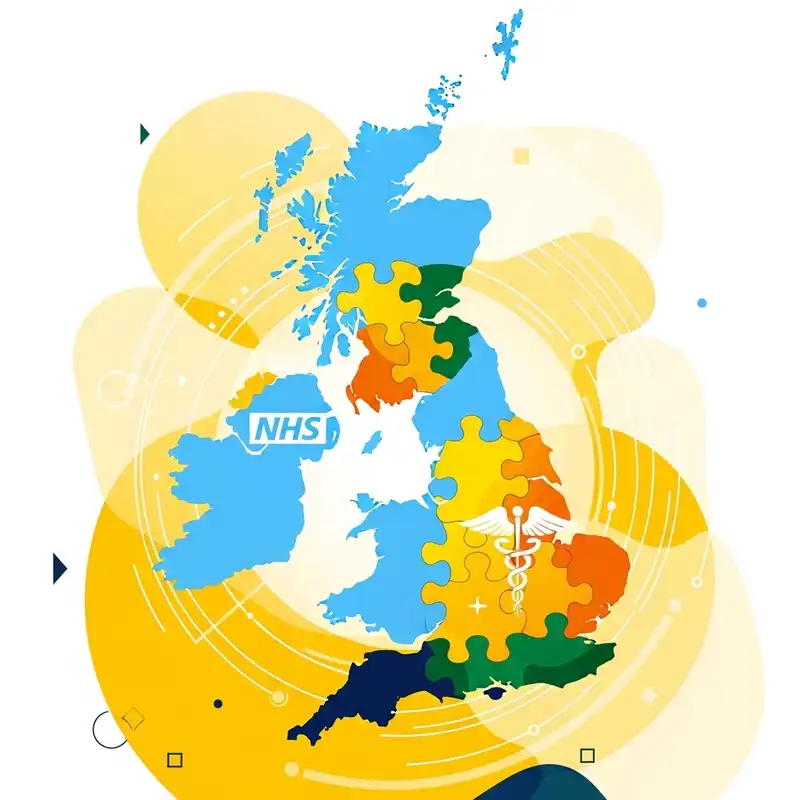Digital Nomads & UK LCIIP Best Insurers for Your Flexible Life, Region-by-Region

Digital Nomads & UK LCIIP: Best Insurers for Your Flexible Life, Region-by-Region
The allure of working from anywhere, exploring new cultures, and setting your own hours has propelled the digital nomad lifestyle from a niche concept to a global phenomenon. Fuelled by advancements in technology and a post-pandemic shift in work paradigms, millions are now embracing a life un tethered to a fixed office. For many UK citizens, this freedom brings incredible opportunities, but it also introduces unique challenges, particularly when it comes to securing essential financial protection like Life, Critical Illness, and Income Protection (LCIIP) insurance.
Traditional insurance policies are often designed for individuals with a stable, fixed address and predictable travel patterns. Digital nomads, with their ever-changing locations and diverse income streams, rarely fit this mould. This comprehensive guide will delve deep into the complexities of securing UK LCIIP for digital nomads, identifying key considerations, regional nuances, and shedding light on which insurers are best equipped to accommodate your flexible life.
The Rise of the Digital Nomad: A Global Shift
The digital nomad movement is more than just a trend; it's a significant evolution in how people work and live. Characterised by remote work, reliance on digital tools, and a nomadic lifestyle, these individuals often operate on laptops from co-working spaces, cafes, or temporary homes around the world.
Who is a Digital Nomad?
A digital nomad is generally defined as someone who uses telecommunications technologies to perform their job and lives a nomadic lifestyle. This broad definition encompasses a wide array of professions, from software developers and graphic designers to online marketers, consultants, and content creators.
Key Characteristics:
- Location Independence: Work can be done from anywhere with an internet connection.
- Frequent Travel: Often living in different countries for weeks or months at a time.
- Diverse Income Streams: Project-based work, freelance contracts, or remote employment.
- Self-Reliance: High degree of personal responsibility for their well-being and finances.
The Scale of the Movement
The digital nomad population has seen exponential growth. In 2019, MBO Partners reported approximately 7.3 million digital nomads in the US. By 2021, that number had surged to 15.5 million, a remarkable 112% increase. While comprehensive UK-specific statistics are harder to pinpoint, the global trend strongly suggests a significant and growing contingent of British citizens embracing this lifestyle. A 2023 survey by Statista indicated that 75% of UK remote workers would consider working from abroad. This burgeoning segment requires tailored financial planning, and insurance is a cornerstone of that.
Why Traditional Insurance Falls Short for Nomads
The core issue for digital nomads lies in the static nature of many traditional insurance products. Insurers typically assess risk based on factors like:
- Residency: A fixed UK address and continuous presence.
- Occupation: Standardised risk assessments for fixed workplaces.
- Travel: Limited travel, often requiring separate travel insurance for holidays.
- Jurisdiction: Policies are often underwritten with the assumption that claims will arise and be processed within the UK.
For a digital nomad, these assumptions quickly unravel. Prolonged periods outside the UK, frequent changes in country of residence, and the varied nature of remote work create complexities that many standard policies aren't equipped to handle.
Demystifying LCIIP: Life, Critical Illness & Income Protection
Before diving into the specifics for digital nomads, let's briefly define the three pillars of LCIIP, and why they remain vital irrespective of your chosen lifestyle.
1. Life Insurance (LI)
Life insurance pays out a lump sum or regular payments to your beneficiaries if you pass away during the policy term. It's designed to provide financial security for your loved ones, covering debts, living costs, and future expenses like education.
Why it matters for nomads: Even if you're not tied down, you might still have dependants (children, elderly parents), a mortgage on a UK property, or other financial obligations you want to protect. The payout can also cover repatriation costs if you die abroad.
2. Critical Illness Cover (CIC)
Critical Illness Cover pays out a tax-free lump sum if you are diagnosed with a specified serious illness (e.g., certain types of cancer, heart attack, stroke) listed in the policy terms. This lump sum can be used to cover medical expenses, adapt your home, replace lost income, or simply provide financial breathing room during recovery.
Why it matters for nomads: Healthcare standards and costs vary dramatically worldwide. A critical illness abroad could lead to enormous medical bills, requiring evacuation, or forcing you to return to the UK for treatment, all while unable to work. CIC provides a financial safety net.
3. Income Protection (IP)
Income Protection insurance pays out a regular, tax-free income if you're unable to work due to illness or injury. It typically covers a significant portion of your income (e.g., 50-70%) until you recover, return to work, or reach retirement age.
Why it matters for nomads: Many digital nomads are self-employed or freelance, meaning no sick pay. An injury or illness could instantly cut off your income. IP ensures you can continue to pay your bills and maintain your lifestyle, whether you're recovering in Bali or back in Bristol.
LCIIP vs. Travel Insurance: A Crucial Distinction
It's vital to understand that LCIIP is not a substitute for travel insurance, and travel insurance does not replace LCIIP.
- Travel Insurance: Primarily covers short-term emergencies like medical expenses abroad (up to a certain limit), lost luggage, trip cancellation, and personal liability for specific trips. It's temporary and focused on the risks of travel itself.
- LCIIP: Provides long-term financial security against major life events (death, critical illness, long-term inability to work). It's designed to protect your overall financial future, regardless of whether you're travelling.
Digital nomads typically need both: robust travel insurance for their immediate journeys and comprehensive LCIIP from a UK provider to underpin their long-term financial resilience.
The Nuances of UK-Based LCIIP for Digital Nomads
Securing LCIIP from a UK provider while living a nomadic life presents several unique hurdles. Understanding these is the first step towards finding suitable coverage.
1. UK Residency and Domicile
Most UK LCIIP policies are predicated on the policyholder being a UK resident and domiciled for tax purposes.
- Residency: While you might spend extended periods abroad, maintaining a UK address (e.g., family home, registered address for a business), a UK bank account, and being registered with a UK GP are often crucial indicators for insurers. If you cease to be a UK tax resident, some policies may become invalid.
- Domicile: This is about where your "permanent home" is legally considered to be. Even if you travel extensively, your domicile might remain the UK. However, if you establish a permanent home abroad, this could complicate matters.
Insurer Appetite: Many UK insurers have clauses about how long you can be outside the UK before your policy's terms are affected. This varies significantly, from 3 months to 12 months, or sometimes unlimited if you retain a UK residential address and tax residency.
2. Geographic Restrictions and Underwriting
This is arguably the biggest challenge. Insurers assess the risk of paying out a claim. When you're constantly moving, especially to countries with differing healthcare standards, political stability, or higher rates of specific illnesses, the risk assessment becomes complex.
- Risk Categorisation: Insurers often categorise countries by risk. High-risk countries (e.g., war zones, areas with high rates of infectious diseases, or extremely limited medical facilities) might be excluded entirely or require significant premium loadings.
- Duration of Stay: How long do you typically spend in one country? Frequent short stays across many countries might be viewed differently from a single, long-term stay in one location.
- Access to Medical Records: Should a claim arise abroad, accessing medical records from local healthcare providers can be challenging, delaying or complicating the claims process.
- Repatriation: If a critical illness or death occurs abroad, policies need to consider the costs and logistics of getting you or your remains back to the UK, which can be astronomical without proper cover.
3. Occupation and Activities
While your job might be location-independent, its nature can still impact your premium.
- Hazardous Activities: If your digital nomad life includes high-risk hobbies (e.g., mountaineering, extreme sports, diving), these will be assessed separately.
- Specific Job Roles: While most digital nomad roles are low-risk from an occupational standpoint, some might involve working in unstable regions or roles that are deemed higher risk by insurers. Transparency is key.
4. Health and Medical History
Your medical history is always a factor. For digital nomads, regular access to a consistent GP for check-ups and record-keeping can be challenging. Insurers will want to know about pre-existing conditions and may require medical examinations, which can be complicated if you're frequently moving.
5. Tax Implications
For UK residents, LCIIP payouts are generally tax-free. However, if your residency or domicile status changes significantly, or if you receive payouts while not a UK tax resident, the tax implications could be different. It's crucial to seek independent tax advice in such scenarios.
Region-by-Region: Insurance Considerations for Digital Nomads
The world is not uniform when it comes to risk, healthcare, or insurer appetite. Below, we explore broad regional considerations, acknowledging that each country within a region will have its own specific nuances.
It's important to note that very few, if any, UK LCIIP providers offer 'worldwide' cover without significant caveats. The focus is always on where you primarily reside for tax purposes and how long you spend in other regions.
| Region | Key Considerations for LCIIP | Typical Insurer Approach (General) | Healthcare Quality & Cost (General) |
|---|---|---|---|
| Europe (Schengen, EU, EEA) | Ease of movement, GHIC/EHIC limitations for immediate care (not LCIIP), varying healthcare systems, often lower risk. | Generally more flexible, often allowing longer periods outside UK (e.g., up to 6-12 months) if UK residency maintained. Some restrictions for very long continuous stays. | Varies from excellent (Nordics, Germany) to good (Southern Europe). Costs are generally lower than USA, but private care can be substantial. |
| North America (USA, Canada) | Extremely high healthcare costs (USA), often specific requirements for long stays, complex visa situations. | Insurers are very cautious due to high medical costs, especially for USA. May require specific underwriting for extended stays. Canada is often viewed more favourably than USA. | USA: Excellent but extremely expensive private care. Canada: Good, but still costly for non-residents. |
| Southeast Asia (e.g., Thailand, Indonesia, Vietnam) | Popular nomad hubs, varying healthcare standards, potential for tropical diseases, medical tourism. | Generally manageable for LCIIP if temporary stay and UK residency maintained. Some insurers might apply loadings for specific countries or activities. | Mixed: High-quality private hospitals in major cities (often cheaper than West), but public healthcare can be basic. Risk of specific diseases (dengue, malaria). |
| East Asia (e.g., Japan, South Korea, Singapore) | Highly developed, high living costs, excellent healthcare, but language barriers possible. | Generally well-regarded by insurers due to stable healthcare systems. Higher cost of living may mean higher sum assured needed. | Excellent, state-of-the-art medical facilities. Costs can be high, particularly in Singapore and Japan. |
| Australia & New Zealand | Reciprocal healthcare agreements (limited scope), high cost of living, stable political environment, similar risks to UK. | Generally well-regarded due to similar healthcare standards and stable environments. May not be seen as a "risk" factor if UK ties maintained. | Very high-quality, but also very high cost of living and healthcare for non-residents. Reciprocal agreements are not comprehensive LCIIP replacements. |
| South America (e.g., Colombia, Brazil, Argentina) | Varying political stability, diverse healthcare quality, potential for specific regional diseases, safety concerns in some areas. | Higher scrutiny. Some insurers might restrict cover or apply significant loadings for long stays or specific countries. Transparency about travel plans is crucial. | Highly variable. Excellent private hospitals in major cities, but public healthcare can be severely lacking. Costs are lower than West. |
| Africa (e.g., South Africa, Morocco, Kenya) | Wide range of conditions, potential for infectious diseases, political instability in some regions, varying healthcare infrastructure. | Highest scrutiny. Many insurers will have specific exclusions for certain countries or require bespoke underwriting. Travel to high-risk areas (e.g., conflict zones) typically excluded. | Highly variable. Good private care in major cities (e.g., Cape Town, Nairobi), but very limited in rural areas. High risk of specific diseases. |
| Middle East (e.g., UAE, Qatar) | High quality, expensive private healthcare in major hubs, cultural differences, political sensitivities in some areas. | Generally manageable for major hubs (e.g., Dubai) due to good healthcare. Other regions may face restrictions or loadings. | Excellent, state-of-the-art private medical care in economic hubs, but extremely expensive for non-residents. |
Important Note on Regional Coverage: This table provides general trends. Each insurer has its own underwriting guidelines, and these can change. What might be acceptable for a 3-month stay in Spain could be completely different for a 3-month stay in Colombia. Your personal medical history, occupation, and the duration of your travel are always overriding factors.
Best UK Insurers: Flexible Options for Digital Nomads
It's challenging to declare a single "best" insurer for digital nomads, as suitability depends entirely on individual circumstances. However, some UK insurers are known for having more flexible underwriting approaches to individuals with international lifestyles. We focus on those that may be more accommodating to longer periods abroad, provided UK residency and domicile are maintained.
When assessing an insurer, a broker like WeCovr looks at their "travel clause" or "residency clause" within their policy wording, specifically:
- How long can you be outside the UK in any 12-month period?
- Do you need to notify them before travelling?
- Are specific countries excluded or rated higher?
- What happens if you cease to be a UK resident?
Here's a general overview of how some major UK LCIIP providers tend to approach individuals with significant international travel:
| UK Insurer | General Flexibility for Nomads (if UK residency maintained) | Key Considerations / Potential Limits |
|---|---|---|
| Aviva | Often flexible, particularly if a UK residential address is retained and you maintain UK tax residency. | Can be accommodating for periods abroad up to 12 months, sometimes more if clear UK ties. |
| Legal & General | Generally flexible, especially for Life Cover. May be more cautious with Income Protection if significant time is spent in high-risk zones. | Often acceptable for periods abroad up to 12 months, with case-by-case assessment for longer. |
| Vitality | Often very accommodating, particularly if you maintain UK GP registration and are a UK tax resident. Their health-focused approach can be beneficial. | Can be flexible for longer periods abroad, especially if activity tracking (via app) is maintained. Geographical exclusions for some very high-risk areas. |
| Royal London | Increasingly flexible, especially for life cover. Good at considering individual circumstances. | Often allows up to 12 months outside the UK, with specific underwriting for longer periods if UK ties are strong. |
| Scottish Widows | Reasonably flexible for life cover. May have stricter limits for critical illness or income protection based on travel. | Typically allows up to 6 months abroad, possibly up to 12 months with notification. |
| AIG | Can be accommodating for Life and Critical Illness if UK residency is maintained. | Often allows up to 12 months abroad; may require detailed travel itineraries for extended periods. |
| Zurich | Generally flexible if a UK address and tax residency are maintained. | Similar to others, often allows up to 12 months abroad, but specific country exclusions may apply. |
Crucial Caveat: This table provides a general indication based on common underwriting practices. The ultimate decision rests with the insurer's underwriters, who will assess your individual application based on your exact travel plans, duration of stays, countries visited, occupation, and health.
This is precisely where an expert broker like WeCovr adds immense value. We work with all major UK insurers and understand their specific underwriting criteria and appetite for risk. Instead of you spending countless hours navigating complex policy documents and being rejected by multiple providers, we can quickly identify the insurers most likely to offer you favourable terms based on your unique digital nomad lifestyle. We can help you compare plans and navigate the nuances to find the right coverage.
Practical Steps for Digital Nomads to Secure LCIIP
Securing appropriate LCIIP as a digital nomad requires a proactive and transparent approach.
1. Maintain UK Ties
Even if you're globe-trotting, retaining strong connections to the UK is paramount for LCIIP purposes.
- UK Residential Address: Even if it's a family address or a friend's, having a stable UK address registered with banks and your GP is crucial.
- UK Bank Account: Essential for premium payments and receiving payouts.
- UK GP Registration: Maintaining continuity with a UK general practitioner makes it easier for insurers to access medical records if needed and demonstrates an intent to return for healthcare if required.
- UK Tax Residency: Understand the rules around UK tax residency (HMRC's Statutory Residence Test) and ensure your travel plans align with your tax status if you intend to remain a UK tax resident.
2. Be Transparent and Detailed with Insurers
Hiding or downplaying your travel plans will only lead to problems at claim stage. Insurers rely on full disclosure to assess risk accurately.
- Provide a Detailed Itinerary: Be ready to list countries you plan to visit, typical duration of stays, and frequency of returning to the UK.
- Explain Your Work: Clearly describe your remote occupation.
- Disclose High-Risk Activities: If your nomad lifestyle involves adventure sports or working in politically unstable areas, declare this upfront.
3. Work with a Specialist Insurance Broker
This cannot be stressed enough. A specialist broker like WeCovr understands the complexities faced by digital nomads.
- Market Knowledge: We know which insurers are more flexible and which clauses to look out for.
- Underwriting Expertise: We can present your case to insurers in a way that highlights your stability and mitigates perceived risks, potentially leading to better terms.
- Time-Saving: Instead of applying to multiple insurers individually, we can do the legwork for you, streamlining the process.
- Claims Support: Should you need to make a claim, a good broker can advocate on your behalf.
4. Review Your Policy Regularly
Your digital nomad life might evolve. Your travel patterns, income, and family situation can change.
- Annual Review: Conduct an annual review of your LCIIP policies to ensure they still meet your needs and align with your current lifestyle and travel plans.
- Notify Insurer of Significant Changes: Always inform your insurer of major changes to your residency, typical travel duration, or high-risk activities.
Common Pitfalls and How to Avoid Them
Even with the best intentions, digital nomads can fall into common traps when seeking insurance.
1. Assuming Travel Insurance is Sufficient
As previously discussed, travel insurance is for short-term travel risks, not long-term financial protection against illness, injury, or death. Relying solely on it leaves massive gaps in your financial security.
2. Misrepresenting Travel Plans or Residency
Being untruthful on an application, whether intentionally or not, can invalidate your policy entirely. Insurers have sophisticated methods for verifying information. Full transparency is always the best policy.
3. Neglecting UK Ties
Allowing your UK residency to lapse without understanding the implications can void policies that are contingent on it. Ensure you understand and maintain the necessary connections to the UK if you want a UK LCIIP policy.
4. Underestimating Healthcare Costs Abroad
Even in countries with lower living costs, private healthcare for serious conditions can be exorbitant. A critical illness without adequate cover could lead to financial ruin.
5. Ignoring Policy Exclusions and Limitations
Always read the small print. Pay particular attention to:
- Geographic Exclusions: Are any countries or regions excluded?
- Duration Limits: How long can you be outside the UK?
- Activity Exclusions: Are any of your hobbies or work activities excluded?
- Residency Clauses: What happens if you cease to be a UK resident?
6. Not Considering Tax Implications
While LCIIP payouts are generally tax-free for UK residents, this can change if your tax residency shifts. Seek independent tax advice if you spend significant time outside the UK.
The Future of LCIIP for Digital Nomads
The landscape of work and living is continually evolving, and the insurance industry is slowly adapting.
1. Specialised Nomad Insurance Products
While still nascent, there's a growing recognition of the digital nomad market. Some niche insurers and brokers are starting to offer products specifically tailored to location-independent professionals, combining elements of health, travel, and even long-term financial protection. These are often international health insurance products rather than traditional LCIIP, but the market is evolving.
2. Digital Nomad Visas
An increasing number of countries are introducing specific digital nomad visas (e.g., Portugal, Spain, Costa Rica). These visas often come with requirements for health insurance and sometimes even proof of sufficient income, which indirectly supports the need for LCIIP. As these visas become more common, insurers may develop more streamlined processes.
3. Increased Flexibility from Traditional Insurers
As remote work becomes standard and the digital nomad lifestyle becomes less 'fringe', mainstream UK insurers are likely to become even more flexible in their underwriting, recognising this as a valid and growing segment of the population. This could mean longer permissible periods abroad, clearer guidelines, and potentially more tailored products.
The key will be continuous dialogue between the evolving needs of digital nomads and the structured risk assessment of the insurance industry.
Conclusion: Securing Your Flexible Future
The freedom and adventure of the digital nomad life are undeniably appealing. However, this freedom comes with personal responsibility for your financial well-being. Life, Critical Illness, and Income Protection insurance are not luxuries for those with fixed lives; they are fundamental safeguards that protect your income, your health, and your loved ones, irrespective of where in the world you are.
Navigating the complexities of UK LCIIP as a digital nomad requires expertise and a transparent approach. Understanding the nuances of UK residency, geographic restrictions, and insurer appetites is crucial. Instead of embarking on this journey alone, partner with an expert.
At WeCovr, we specialise in helping individuals with complex insurance needs, including digital nomads. We understand the specific challenges you face and have the market knowledge to identify the UK insurers most likely to offer you comprehensive and suitable LCIIP cover. By working with us, you can ensure your flexible life is backed by robust financial protection, allowing you to explore the world with confidence and peace of mind. Your adventure deserves to be protected.
Related guides
Why life insurance and how does it work?
What is Life Insurance?
Life insurance is an insurance policy that can provide financial support for your loved ones when you or your joint policy holder passes away. It can help clear any outstanding debts, such as a mortgage, and cover your family's living and other expenses such costs of education, so your family can continue to pay bills and living expenses. In addition to life insurance, insurance providers offer related products such as income protection and critical illness, which we will touch upon below.How does it work?
Life insurance pays out if you die. The payout can be in the form of a lump sum payment or can be paid as a replacement for a regular income. It's your decision how much cover you'd like to take based on your financial resources and how much you'd like to leave to your family to help them deal with any outstanding debts and living expenses. Your premium depends on a number of factors, including your occupation, health and other criteria.The payout amount can change over time or can be fixed. A level term or whole of life policy offers a fixed payout. A decreasing term policy offers a payout that decreases over the term of the cover.
With critical illness policies, a payout is made if you’re diagnosed with a terminal illness with a remaining life expectancy of less than 12 months. While income protection policies ensure you can continue to meet your financial commitments if you are forced to take an extended break from work. If you can’t work because you’ve had an accident, fallen sick, or lost your job through no fault of your own, income protection insurance pays you an agreed portion of your salary each month.
Income protection is particularly helpful for people in dangerous occupations who want to be sure their mortgage will always be covered. Income protection only covers events beyond your control: you’re much less likely to be covered if you’re fired from your job or if you injure yourself deliberately.
Questions to ask yourself regarding life insurance
Just ask yourself:👉 Who would pay your mortgage or rent if you were to pass away or fall seriously ill?
👉 Who would pay for your family’s food, clothing, study fees or lifestyle?
👉 Who would provide for the costs of your funeral or clear your debts?
👉 Who would pay for your costs if you're unable to work due to serious illness or disability?
Many families don’t realise that life, income protection and critical illness insurance is one of the most effective ways to protect their finances. A great insurance policy can cover costs, protect a family from inheriting debts and even pay off a mortgage.
Many would think that the costs for all the benefits provided by life insurance, income protection insurance or critical illness insurance are too high, but the great news is in the current market policies are actually very inexpensive.
Benefits offered by income protection, life and critical illness insurance
Life insurance, income protection and critical illness insurance are indispensable for every family because a child loses a parent every 22 minutes in the UK, while every single day tragically 60 people suffer major injuries on the UK roads. Some people become unable to work because of sickness or disability.Life insurance cover pays out a lump sum to your family, loved ones or whomever you choose to get the money. This can be used to secure the financial future of your loved ones meaning they would not have to struggle financially in the event of your death.
If it's a critical illness cover, the payout happens sooner - upon diagnosis of a serious illness, disability or medical condition, easing the financial hardship such an event inevitably brings.
Income protection insurance can be very important for anyone who relies on a pay check to cover their living costs, but it's especially important if you’re self-employed or own a small business, where your employment and income is a bit less stable. It pays a regular income if you can't work because of sickness or disability and continues until you return to paid work or you retire.
In a world where 1 in 4 of us would struggle financially after just four weeks without work, the stark reality hits hard – a mere 7% of UK adults possess the vital shield of income protection. The urgency of safeguarding our financial well-being has never been more palpable.
Let's face it – relying on savings isn't a solution for everyone. Almost 25% of people have no savings at all, and a whopping 50% have £1,000 or less tucked away. Even more concerning, 51% of Brits – that's a huge 27 million people – wouldn't last more than one month living off their savings. That's a 10% increase from 2022.
And don't even think about state benefits being a safety net. The maximum you can expect from statutory sick pay is a mere £109.40 per week for up to 28 weeks. Not exactly a financial lifeline, right?
Now, let's tackle a common objection: "But I have critical illness insurance. I don't need income protection too." Here's the deal – the two policies apply to very different situations. In a nutshell:
- Critical illness insurance pays a single lump sum if you're diagnosed with or undergo surgery for a specified potentially life-threatening illness. It's great for handling big one-off expenses or debts.
- Income protection, on the other hand, pays a percentage of your salary as a regular payment if you can't work due to illness or injury. It's the superhero that tackles those relentless monthly bills.
Types of life insurance policies
Common reasons for getting a life insurance policy are to:✅ Leave behind an amount of money to keep your family comfortable
✅ Protect the family home and pay off the mortgage in full or in part
✅ Pay for funeral costs
Starting from as little as a couple of pounds per week, you can do all that with a Life Policy.
Level Term Life Insurance
One of the simplest forms of life insurance, level term life insurance works by selecting a length of time for which you would want to be covered and then deciding how much you would like your loved ones to receive should the worst happen. Should your life insurance policy pay out to your family, it would be in a lump sum amount that can be used in whatever way the beneficiary may wish.
Decreasing Term Life Insurance
Decreasing term life insurance works in the same way as level term, except the lump sum payment amount upon death decreases with time. The common use for decreasing term life cover is to protect against mortgage repayment as the lump sum decreases along with the principal of the mortgage itself.
Increasing Term Life Insurance
Increasing term life insurance aims to pay out a cash sum growing each year if the worst happens while covered by the policy. With increasing term life cover amount insured increases annually by a fixed amount for the length of the policy. This can protect your policy's value against inflation, which could be advantageous if you’re looking to maintain your loved ones’ living standards, continue paying off your mortgage in line with its repayment schedule and cover your children’s education fees.
Whole of Life Insurance
Whereas term life insurance policies only pay out if you pass away during their term, whole of life insurance pays out to your beneficiaries whenever this should happen. The most common uses for whole life insurance are to cover the costs of a funeral or as a vehicle for your family's inheritance tax planning.
Family Income Benefit
Family income benefit is a somewhat lesser-known product in the family of life insurance products. Paying out a set amount every month of year to your beneficiaries, it is the most cost-effective way of maintaining your family's living standards to an age where you'd expect them to be able to support themselves financially. The most common use would be for a family with children who are not working yet so are unable to take care of themselves financially.
Relevant Life Insurance
Relevant Life Insurance is a tax-efficient policy for a director or single employee. A simple level term life insurance product, it is placed in a specific trust to ensure its tax efficiency. The premiums are tax deductible and any benefit payable should a claim arise is also paid out tax free, which makes it an attractive product for entrepreneurs and their businesses.
Important Fact!
We can look at a more suitable option mid-term!
Why is it important to get life insurance early?
👉 Many people are very thankful that they had their life, income protection, and critical illness insurance cover in place before running into some serious issues. Critical illness and income protection insurance is as important as life insurance for protecting your family's finances.👉 We insure our cars, houses, bicycles and even bags! Yet our life and health are the most precious things we have.
Easily one of the most important insurance purchases an individual or family can make in their lifetime, the decision to buy life, income protection, critical illness and private medical health insurance can be made much simpler with the help of FCA-authorised advisers. They are the specialists who do the searching and analysis helping people choose between various types of life insurance policies available in the market, including income protection, critical illness and other types of policies most suitable to the client's individual circumstances.
It certainly won't do any harm if you speak with one of our experienced FCA-authorised insurance partner experts who are passionate about advising people on financial matters related to life insurance and are keen to provide you with a free consultation.
You can discuss with them in detail what affordable life, income protection, critical illness or private medical health insurance plan for the necessary peace of mind they would recommend! WeCovr works with some of the best advisers in the market.
By tapping the button below, you can book a free call with them in less than 30 seconds right now:
Our Group Is Proud To Have Issued 900,000+ Policies!
We've established collaboration agreements with leading insurance groups to create tailored coverage
























How It Works
1. Complete a brief form

2. Our experts analyse your information and find you best quotes

3. Enjoy your protection!

Any questions?
Learn more

Who Are WeCovr?
WeCovr is an insurance specialist for people valuing their peace of mind and a great service.👍 WeCovr will help you get your private medical insurance, life insurance, critical illness insurance and others in no time thanks to our wonderful super-friendly experts ready to assist you every step of the way.
Just a quick and simple form and an easy conversation with one of our experts and your valuable insurance policy is in place for that needed peace of mind!





